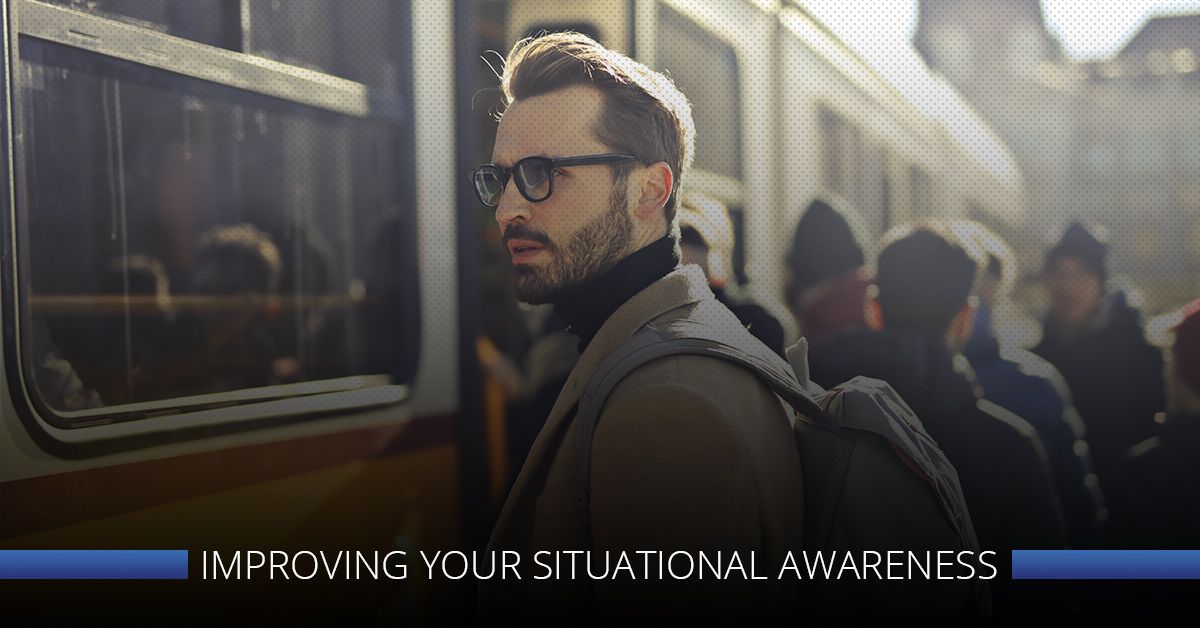It’s often said that one of the best ways to keep yourself out of trouble is to never let yourself get in trouble in the first place. This is easier said than done, especially if you’re not practicing good situational awareness. Without it, you might stumble into an experience that is hard to get out of. From muggings to kidnappings and everything in between, you can improve your safety in your life just by being more aware. In today’s blog, the security professionals at Tx2 Security Group will offer you insights into how to improve your situational awareness.

Improving Your Situational Awareness
Orient Yourself To Your Surroundings
Just taking a few moments to do this almost immediately improves your situational awareness. The world is a dynamic place, and to stay safe, you have to do your best to keep track of all of the moving pieces. Take note of a few key elements in every environment you’re in, including:
- Entrances and exits
- Distinct objects
- Events that are unfolding
- People
- The condition of the space you’re in
While this might sound like a lot to take in, you’re likely already doing this as soon as you step into a room. Improving your situational awareness, in this case, is just simply being more aware of these factors, and making small mental notes about them.
Maintain Constant Vigilance
The second part of maintaining your situational awareness is to regularly observe your surroundings as you spend time there. Now that you’re oriented to your surroundings, you can take note of particular individuals who seem out of place, or are behaving erratically. You can measure if that person feels off by looking at the general ambiance of the space, and the activity occurring there. For instance, if you’re at a party, and there’s a lot of dancing, you’d expect a general atmosphere of jubilance. If someone in the crowd seems to stand out from that ambiance, they might have ulterior motives for being there.
Evaluate Your Situation
Once you’ve observed your environment and observed the notable features and figures, it’s time to start evaluating your situation. This is always changing based on the factors we made earlier, but for example, if you’re at work where you know the staff and the features of the building, likely your evaluation of that place is one of safety. If in an emergency situation, you could likely get yourself out of it easily. However, if you’re traveling through an unknown part of town, and you’ve noticed that a pair of individuals has been following you for the last eight blocks, and you’re not quite sure where you are, your evaluation of that situation is one of alert.
Use Your Gut Instinct
We’ve all been in situations that have just felt off to us. If you acted on those feelings, you likely felt better as soon as you were in an environment you were familiar with. It’s important to trust your instincts when developing your situational awareness. While it is entirely possible for you to misread a situation, and your gut instinct was wrong, never be afraid to act on these instincts and leave situations you feel could go south. Often, your body is able to subconsciously evaluate and react to an environment or experience before you’ve even finished your conscious observations.
Being cognizant of where you are, what’s happening around you, and trusting your instincts are all surprisingly effective ways of keeping yourself out of dangerous situations. Of course, if you find yourself in regular contact with unsavory situations, you may find that just practicing situational awareness alone doesn’t cut it. In this case, it is a great idea to have a personal bodyguard to assist you. Together, if you’re both observant, you can avoid trouble, but your bodyguard can get you out of it fast if need be. Contact Tx2 Security Group to arrange for a personal bodyguard in Texas.

